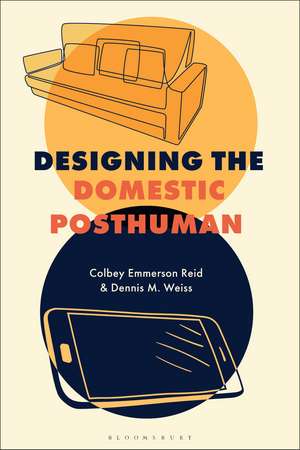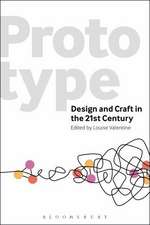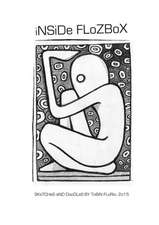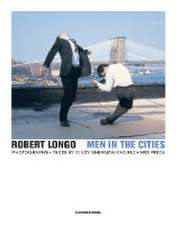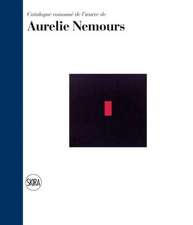Designing the Domestic Posthuman
Autor Colbey Emmerson Reid, Dennis M. Weissen Limba Engleză Hardback – 24 ian 2024
Preț: 468.41 lei
Preț vechi: 646.81 lei
-28% Nou
Puncte Express: 703
Preț estimativ în valută:
89.63€ • 93.83$ • 74.16£
89.63€ • 93.83$ • 74.16£
Carte disponibilă
Livrare economică 15-29 martie
Livrare express 04-08 martie pentru 113.46 lei
Preluare comenzi: 021 569.72.76
Specificații
ISBN-13: 9781350301207
ISBN-10: 1350301205
Pagini: 208
Ilustrații: 10 bw illus
Dimensiuni: 156 x 234 x 17 mm
Greutate: 0.54 kg
Editura: Bloomsbury Publishing
Colecția Bloomsbury Visual Arts
Locul publicării:London, United Kingdom
ISBN-10: 1350301205
Pagini: 208
Ilustrații: 10 bw illus
Dimensiuni: 156 x 234 x 17 mm
Greutate: 0.54 kg
Editura: Bloomsbury Publishing
Colecția Bloomsbury Visual Arts
Locul publicării:London, United Kingdom
Caracteristici
Explores the intersection of posthumanism and design by applying feminist philosophy. It considers the posthuman in relation to women, infants, disabled people, the elderly and across cultures globally and envisions a future that doesn't reiterate social discriminations and injustices.
Notă biografică
Dennis M. Weiss is Professor of Philosophy at York College of Pennsylvania, USA. He works at the intersection of philosophical anthropology, philosophy of technology, and philosophy of culture. He is the editor of Interpreting Man (2002) and co-editor of Design, Mediation, and the Posthuman (2016). He has published more than 30 articles in journals and anthologies on topics ranging from critical posthumanism to The Twilight Zone and the philosophy of Philip K. Dick.Colbey Emmerson Reid is Professor and Chair of Fashion Studies at Columbia College Chicago, USA. She is also the Founder and Executive Director of the Fashion Lab, a Chicago-based organization for academic-corporate partnerships in co-creating and executing custom design research and product development projects. She studies the interface of fashion and interior design with technology and disability studies. She co-edited Design, Mediation, and the Posthuman (2016) and contributed to Emerging Genres in New Media Environments (2017). She has won awards for her essays on design flaws and statistical aesthetics as well as for a series of external outreach and engagement projects executed in the Research Triangle in North Carolina in 2013-2016.
Cuprins
AcknowledgementsIntroduction: Designing the Domestic PosthumanPart 1: Posthuman Perons1. Posthuman Parturition: An Origin Story2. Domestic Posthuman Second Persons3. Myths of Domestic Second PersonsPart 2: Poshuman Artifacts4. Softwear5. (Un)homely Techne6. Myths of Domestic Posthuman ArtifactsConclusion: A Design Sampler for the Domestic PosthumanReferences
